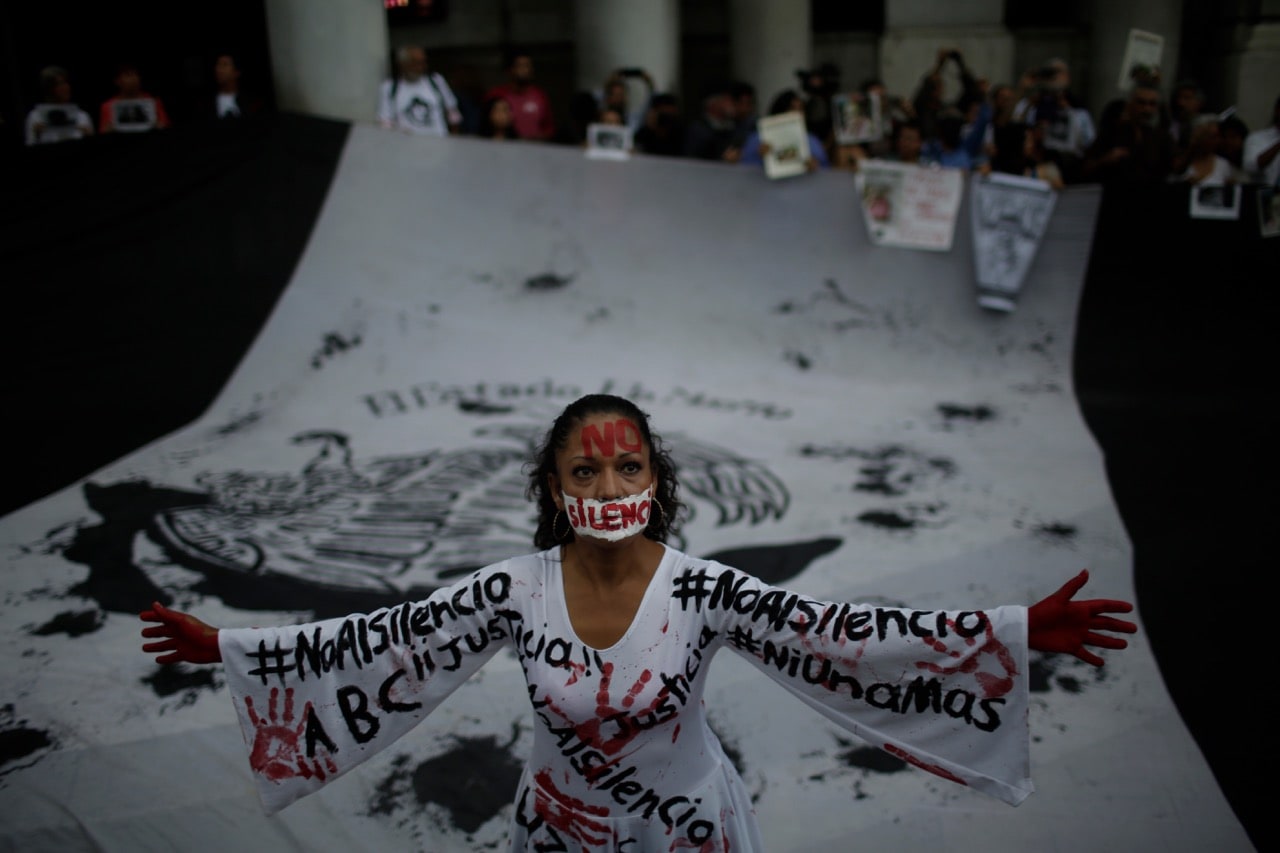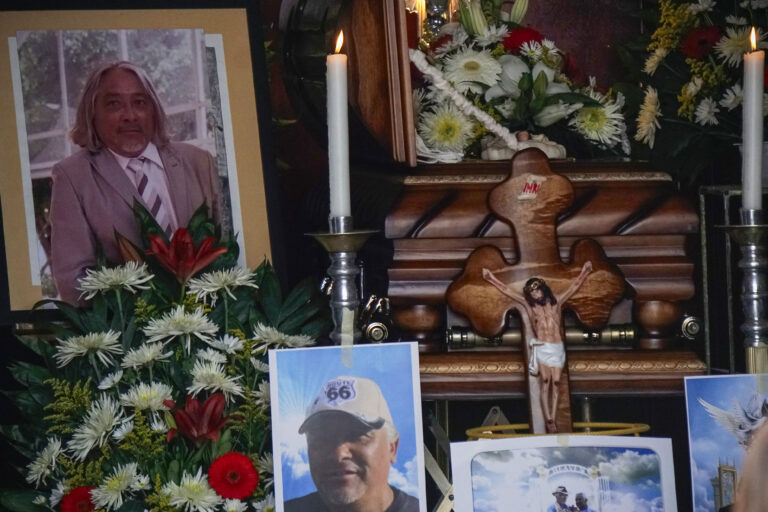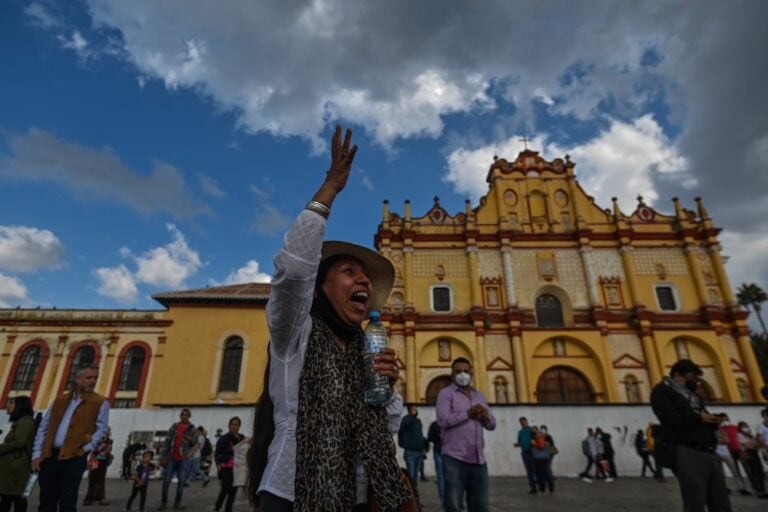How do we confront endemic issues in a country where violence has become a daily reality? What are the gender dimensions of the violence? What can this new government do differently from its predecessor?
At the beginning of every year, people commit to becoming better versions of themselves. They go on diets, exercise, and start saving money… But by the time March rolls around, many of these goals have been tossed out the window.
A parallel can be drawn with national elections – the winning party is usually quite optimistic, particularly if it’s ousted a political party with an opposing ideology.
Andrés Manuel López Obrador’s electoral triumph in Mexico gave many a glimmer of hope with regards to addressing pressing issues like safety and impunity, as well as violence against journalists and activists. According to civil society organisations, the rate of impunity for such crimes is currently 99.6%.
IFEX spoke with several Mexican activists and human rights defenders about their expectations for the new government – and why they think Mexico cannot escape the spiral of extreme violence that has made it the most dangerous country in the world to be a journalist.
With 12 journalists murdered in 2017, and seven killed in 2018, Reporters Without Borders has once again named Mexico one of the 50 countries with the least freedom of expression in the world. The state of this human right is an urgent matter for Mexico and its civil society – but will it be as much of a priority for the new government?
Doing the government’s job
Sandra Patargo is an activist who worked with ARTICLE 19, and coordinated the “Break the Fear” network (red Rompe el Miedo), a platform that seeks to visibilize acts of violence against journalists, media outlets and human rights defenders across the country.
The network was active across numerous scenarios, and was particularly engaged in the electoral process – one where it recorded “a significant increase in violence.”
While the rate of violence was already high, “nothing could compare to the recent election.”
“This election was extremely violent. We documented 146 cases of attacks on journalists, and just on election day itself there were 32,” Patargo said.
“We found that there was an exponential increase in violence against journalists and other members of our network. This was an historic high. Even though numerous factors were at play – among them the fact that the elections were national and thus large, and that our network expanded annually – the truth is that, in general, people perceive that violence, far from decreasing or stabilising, is increasing,” she stated.
The elections also cost the lives of over 100 politicians. “It was an extremely violent electoral process, in addition to the fact that 2018 has been one of the bloodiest years in the history of the country.”
According to Patargo, there were “small advances” towards reducing violence and attacks against journalists, “but without a doubt, we have a long way to go.”
“We’re waiting to see what this new government is all about. We see that, up until now, in addition to a governance vacuum, there are a series of measures that try to protect journalists and activists that were not not well thought-out, and that, in many cases, have not been ideal,” she said, adding that one of the examples of poorly conceptualised policies is the displacement of journalists to other parts of the country.
“It’s very difficult for a journalist to continue doing their work following a traumatic move.”
“We hope there is a constitutional reform so that some of the mechanisms start to work better. The clearest case is that of the Specialised Prosecutor’s Office. There is so much corruption and infiltration in state governments that the creation of this Prosecutor’s Office was a big step. Nevertheless, it has left much to be desired. The rate of impunity for cases of murdered journalists is at 99.6%,” she added.
To Patargo, Mexico “has some of the most robust protection mechanisms and tools for activists in the world,” but “this doesn’t mean anything, given that they are not efficient, and they don’t work.”
“Civil society had to litigate so that the Public Prosecutor would take on important cases about crimes against journalists. You can’t just create an organism and expect results; you need clear political will that carries out the mandates of these organisms,” she added.
According to the activist, the violence and “lack of legal protection” by the “absent” state has “prompted more and more networks and civil society groups to occupy the spaces that the government has neglected.”
“Ultimately, we’re doing the work the government is not doing,” she stated.
Journalism and gender based violence
Luisa Pérez Ortíz is a human rights activist and co-founder of NVALabs.org, an organisation that promotes innovative activities – through technology – to combat violence.
“The governance vacuum and the absence of a gender lens have been key themes of the government that’s on its way out,” said Ortiz, who, along with her team, worked with victims that sought support from the “Break the Fear” (Rompe Miedo) network during the previous government’s six-year term.
“The people who came to us were exhausted. They were extremely tired. They came from highly stressful circumstances that led them to fatigue. In many cases, we noticed that those with the worst symptoms (gastritis, intense stress, the inability to sit down) came from the most violent states, such as Yucatán or Guerrero,” she added.
This complex issue is further aggravated by yet another factor: gender-based violence.
“We have registered an increase in violence-at-large, but when it comes to women journalists, this increase is alarming. It’s increasing approximately 20% annually, and victims are targeted for two reasons: for being a journalist and a woman,” the activist said.
“Violence against women is automatically sexualised and includes many elements of extreme violence. What happens to people when they experience this? They become full of fear and anxiety,” she added.
For Ortíz, what’s most disconcerting is that “in most cases, gender-based violence against journalists is perpetrated by local police authorities, or local government workers,” those who are “in charge of protecting us.” “There was an enormous governance vacuum. These people were completely alienated, with no help or support, just like LGBTI groups. So, we tried to provide them with psychological support, massage, and even a calm and safe place to sleep,” she explained.
When asked for her perspective on change within the new government, Ortíz answered cautiously: “Mexican society is profoundly ill; these past elections were full of a lot of pain and distrust.”
“Those of us who defend human rights view AMLO as an ally, but we always say, ‘while it’s good to fight alongside an ally, we will continue our fight and our struggle’. We cannot forgot what we, as civil society, must do to combat this,” she added.
“It’s very difficult for victims of violence to want to talk about their experiences in the current Mexican content. We have a tired press, a wounded civil society, and a silent enemy who grows by the day: organised crime. Not only that, but society is indifferent to the death of journalists. People often think the journalist was corrupt, or that they did something that led to their death, or that the journalist arrived at the position she was at through sexual favours,” she said.
Extremely violent country, organised society
It’s precisely this societal indifference that The National Centre for Social Communication (Centro Nacional de Comunicación Social, Cencos) seeks to challenge through its work. Cencos’ Executive Director, Ixchel Cisneros, explained: “Our primary problem as civil society is, I believe, that we have not known how to show Mexican society the importance of journalists’ work, and that – different from the thousands of crimes and violent actions that are committed in this country – journalists are killed for doing their job.”
“We don’t have empathy from a large part of society because many people don’t understand this. It is true that there are journalists who receive government bribes or who collude with organised crime. But this detracts from the credibility of those who are doing their work with integrity. We have to challenge these narratives and explain why our work is important and why it is unacceptable to murder journalists,” she said.
Cisneros explained why Cencos and other networks have a campaign called “free voices” in which “we explain to people why our work is important” and why it is important to “defend journalists from attacks and violence.”
“The Mexican government specialises in criminalising and targeting journalists and rights defenders. The last six-year term was very difficult for journalists and activists, given that they were continually harassed with impunity; one can murder journalists without any consequences,” she asserted.
According to Cisneros, this new government “did not discuss this topic” during the campaign and “does not consider this to be a primary concern” which “is very problematic.”
“López Obrador should consult journalists’ organisations and networks and civil society in order to understand this topic in full. He must address the issue of the Prosecutor’s Office, which has not done anything. The Prosecutor’s Office was created to defend journalists and has not resolved any case, or at least any of the murder cases. Furthermore, our protection mechanism for journalists is not working, it does not have sufficient resources or skilled people. I think there is much to be done and a lot to demand of the new government,” she added.
“Civil society must continue making an impact, and journalist networks in particular need to start explaining what our work is about, but we have a long road ahead. In Mexico, they’ll stop killing journalists when they see perpetrators and masterminds go to jail for their crimes.”
Regarding the potential for change, Cisneros said: “We live in an extremely violent country, and a government is not going to change this reality in six years. We hope to make strides towards that change, but I don’t think it can be done in six years.”



